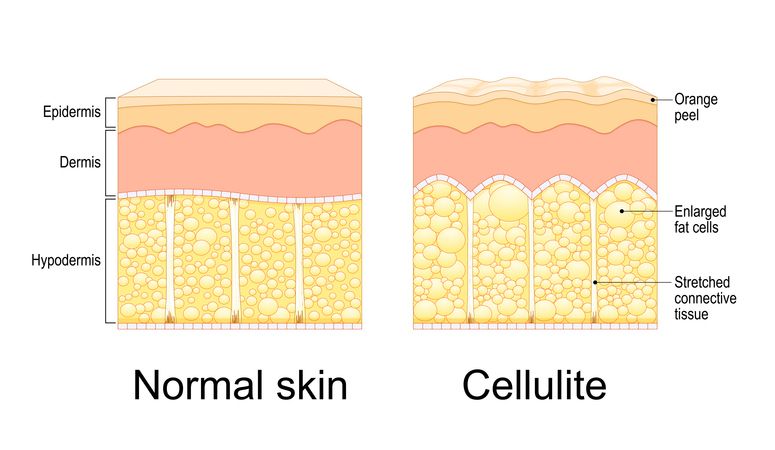Author: Natalie Ng|Updated: 22 May 2025
Large pores can make skin look uneven and dull. They often appear more noticeable on oily skin or when skin loses firmness with age. Factors like UV exposure, excess oil, and dead skin cells can stretch pores, leaving them looking enlarged and sometimes clogged. Regular cleansing can help, but pore size can also depend on sebum production, oil, dirt, and even the way skin products interact with different skin types. While you can’t make pores disappear completely, the right skincare routine, including key ingredients like salicylic acid and retinol, can improve skin’s appearance and reduce visible pore size. Consistent care and the right treatments can help minimize pores, support skin’s texture, and stimulate collagen production for smoother, firmer skin. In the next section, you’ll discover effective ways to refine pores, prevent clogged pores, and keep skin clean and radiant. Keep reading for practical tips that work for oily, dry, and combination skin.

Solution 1: Cleanse Properly with a Non-Comedogenic Cleanser
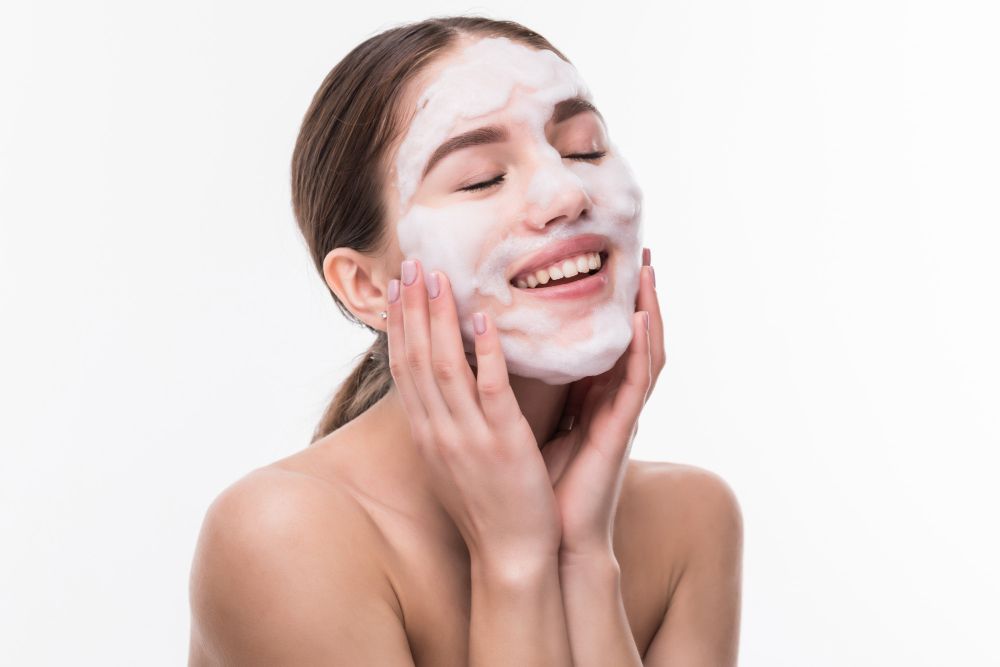
Importance of cleansing for pore health
Large pores often become more visible when the skin is not cleaned well. Throughout the day, dirt, sweat, excess oil, and dead skin cells collect on the skin’s surface. This mix builds up inside pores, stretching them and making them look larger. As skin ages, it loses firmness, which also makes pores appear bigger. Keeping the skin clean prevents this buildup and helps pores look smaller.
Cleansing removes trapped sebum, blackheads, and oil, which improves skin texture. When skin stays clear, it looks smoother, more even, and less prone to clogged pores.
Non-comedogenic cleansers help keep pores clear
Non-comedogenic cleansers are made to clean the skin without blocking pores. They remove dirt, excess oil, and dead skin cells while being gentle on the skin barrier. For oily skin, a non-comedogenic cleanser helps control excess oil production. For dry skin, a hydrating formula cleans without stripping the skin. Combination skin benefits from a balanced formula that manages oil in some areas and adds hydration to others.
These products help prevent clogged pores and blackheads while keeping the skin’s surface healthy. A good non-comedogenic cleanser supports a clear complexion and reduces the risk of pore enlargement.
Choosing a cleanser based on skin type
Oily skin produces more sebum, which often leads to larger pores. A cleanser that removes oil without drying the skin helps maintain balance and reduce pore size. Dry skin needs a gentle formula that keeps the skin barrier intact. Sensitive skin benefits from cleansers without harsh surfactants or fragrance, which can cause irritation. Different skin types need different ingredients, but the goal is always the same: clean skin that stays clear and smooth.
Water temperature for cleansing
Water temperature matters when washing the face. Warm water helps break down oil and sweat while protecting the skin barrier. Hot water can irritate skin, increase oil production, and make pores look larger. Cold water may not remove dirt and oil effectively. Using warm water supports healthy skin elasticity and keeps pores looking smaller.
Regular cleansing for pore health
Washing the face once or twice a day helps remove oil, dirt, and sweat before they can block pores. Regular cleansing helps manage sebum production, keeps skin’s surface smooth, and prevents blackheads. This simple step creates a strong base for other treatments like salicylic acid, retinol, and pore-refining products.
With the right cleanser and a regular routine, skin stays clean, balanced, and healthy, and pores look less visible.

Solution 2: Exfoliate with Salicylic Acid to Unclog Pores
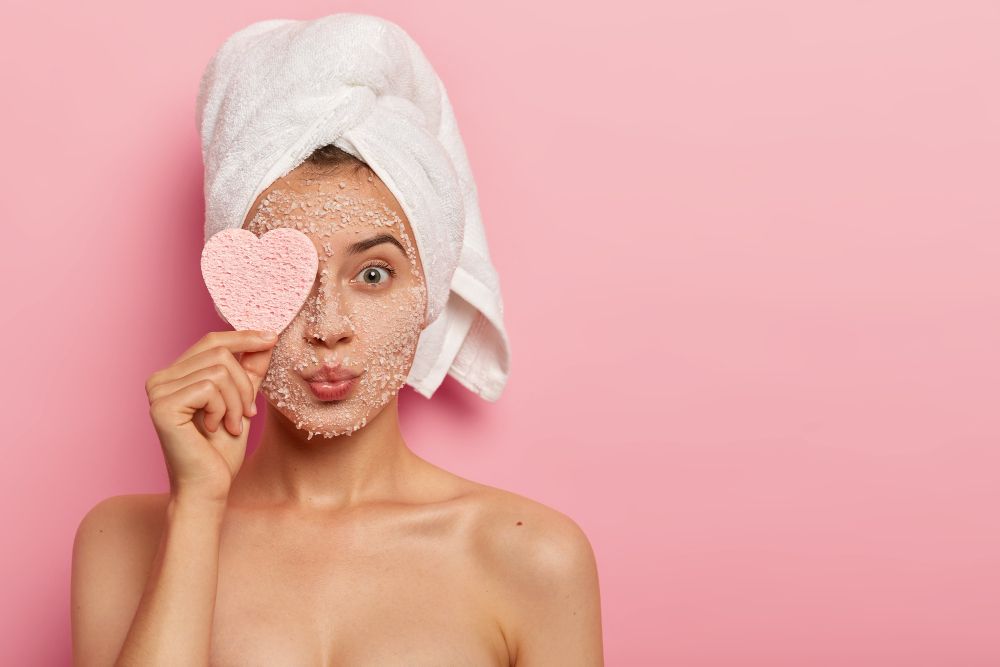
Salicylic acid supports pore health
Salicylic acid is a beta-hydroxy acid that works deep within the pores. It breaks down excess oil, dead skin cells, and dirt that collect on the skin’s surface and inside the pores. These blockages make pores look stretched and more visible. Using salicylic acid regularly helps clear this buildup, reduces blackheads, and improves skin texture.
Salicylic acid is especially helpful for oily skin. It controls excess oil production, prevents clogged pores, and reduces the risk of acne. Dry skin can also benefit when used in the right amount, as salicylic acid helps remove dead skin cells without harsh scrubbing.
Choosing products with salicylic acid
Salicylic acid is available in different forms, including cleansers, toners, and leave-on treatments. Cleansers with salicylic acid remove dirt and oil while washing the face, while serums and spot treatments provide targeted care for problem areas. For sensitive skin, a lower concentration may work better to avoid irritation.
Products that combine salicylic acid with hydrating ingredients can balance the skin by keeping it clear without stripping moisture. This is important for maintaining skin barrier health and supporting overall skin appearance.
Supporting other steps in a skincare routine
Salicylic acid prepares the skin for other treatments by clearing out pores and smoothing the skin’s surface. This helps ingredients like retinol, vitamin C, and peptides work more effectively. It also helps control sebum production, which reduces the chance of developing blackheads and clogged pores in the future.
Long-term improvements in pore size and skin texture
Using salicylic acid regularly helps reduce pore size and improve skin texture over time. It smooths the skin, reduces oil buildup, and keeps pores from stretching. Combined with regular cleansing and sun protection, salicylic acid helps maintain healthy, radiant skin.
Read More
Book Now to Experience
Acne Treatment
1 Minute Self-Registration
Date should not be before minimal date

Solution 3: Apply Retinol to Support Skin Renewal
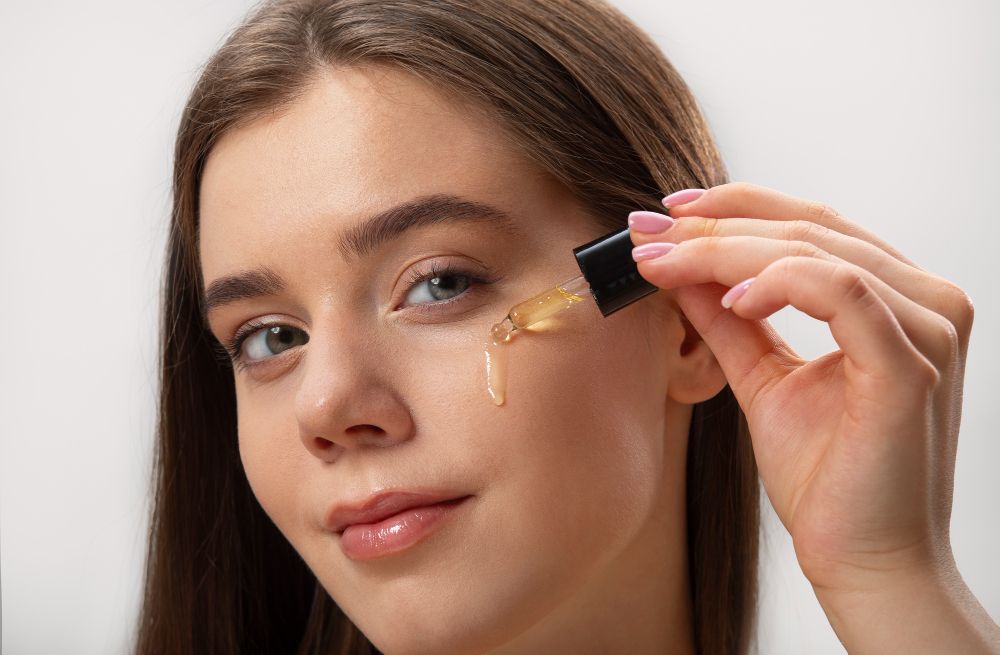
Retinol improves skin texture and refines pores
Retinol is a form of vitamin A that speeds up skin cell turnover. It helps clear away dead skin cells, prevents clogged pores, and supports smoother skin. Over time, retinol strengthens the skin’s surface and reduces the appearance of large pores.
Retinol also supports collagen production, which helps maintain skin elasticity. When the skin loses elasticity, pores can stretch and become more visible. By helping skin stay firm, retinol prevents this from happening and keeps the skin looking even and smooth.
Choosing retinol for different skin types
Oily skin can benefit from retinol’s ability to control sebum production and reduce the risk of clogged pores. Dry skin may need lower concentrations or less frequent use, as retinol can sometimes cause dryness or irritation. Sensitive skin should start with a gentle retinol product, used once or twice a week, and gradually increase use.
Retinol works best in a routine that supports hydration. Pairing it with a lightweight, non-comedogenic moisturizer helps prevent dryness and irritation while supporting skin health.
Using retinol safely
Retinol is best used at night, as it can make skin more sensitive to UV exposure. Apply a pea-sized amount to clean, dry skin, and follow with a hydrating moisturizer. Start slowly to allow your skin to adjust, then increase frequency as your skin builds tolerance.
Long-term benefits for pores and skin firmness
Retinol helps reduce the look of large pores by strengthening the skin’s structure and supporting collagen production. Over time, skin appears firmer, more even, and less prone to clogged pores. Regular use of retinol creates a smoother skin texture and helps maintain a clear, radiant complexion.

Solution 4: Protect Skin from Sun Damage

UV exposure weakens skin structure and enlarges pores
Long-term sun exposure breaks down collagen and elastin, two proteins that keep skin firm. As the skin loses its structure, the tissue around pores starts to weaken. This causes pores to stretch and look larger. UV rays also increase oil production, which can lead to clogged pores and blackheads, making the skin’s surface appear rougher and more uneven.
When skin loses its firmness, it struggles to bounce back from daily stress. The result is a duller complexion, more visible pores, and an uneven skin texture. Sun protection helps prevent this damage and keeps skin looking smoother.
Sunscreen protects against UV damage and supports skin health
Wearing sunscreen every day helps protect the skin’s surface from harmful UV rays that can thin the skin and make pores appear larger. A broad-spectrum sunscreen with SPF 30 or higher blocks both UVA and UVB rays, helping maintain skin firmness and supporting collagen production.
Lightweight, non-comedogenic sunscreen formulas are ideal for oily skin as they protect without clogging pores. For dry skin, sunscreen with hydrating ingredients helps lock in moisture while shielding against UV damage.
Daily use of sunscreen reduces pore stretching
Applying sunscreen every morning helps prevent sun damage and keeps pores from stretching over time. Reapply every two hours when spending time outdoors, and after swimming or sweating. Wearing sunscreen daily helps protect skin elasticity and maintains an even texture.
Sunscreen as part of a skincare routine
Using sunscreen is an important step alongside treatments like salicylic acid, retinol, and collagen-boosting products. It helps protect the skin from further damage and supports the long-term benefits of pore-refining treatments.
Book Now to Experience
Acne Treatment
1 Minute Self-Registration
Date should not be before minimal date

Solution 5: Use Pore-Refining Products with Key Ingredients
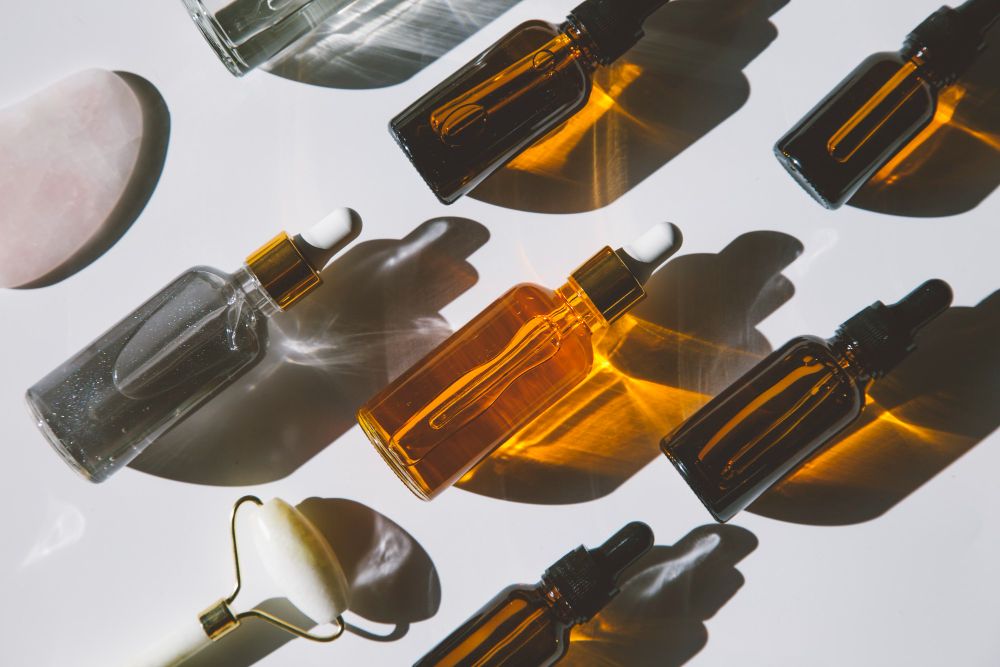
Ingredients that support smoother skin and smaller pores
Certain ingredients help improve skin texture and reduce the look of large pores. Niacinamide regulates oil production, reduces redness, and helps refine skin’s appearance. Salicylic acid keeps pores clear by dissolving oil and dead skin cells. Retinol supports skin renewal and boosts collagen production, which helps maintain skin’s structure. These ingredients work together to unclog pores, smooth skin’s surface, and prevent new blockages from forming.
Choosing the right pore-refining products
Pore-refining products come in different forms, including serums, toners, and creams. For oily skin, lightweight serums with niacinamide or salicylic acid help reduce excess oil without adding extra weight. Dry skin benefits from hydrating formulas that include pore-refining ingredients and moisturizers.
Different skin types respond best to targeted treatments that address specific concerns, such as clogged pores, uneven texture, or excess oil production. Non-comedogenic products help prevent buildup inside pores while supporting a smooth, even skin surface.
Using pore-refining treatments regularly
Applying pore-refining products as part of a skincare routine helps manage oil production, clear clogged pores, and reduce the risk of blackheads. These products should be used a few times a week, depending on the formula and skin’s tolerance.
Pore-refining products complement other skincare steps, such as cleansing, exfoliation, and sun protection. They help maintain skin’s texture and reduce the look of enlarged pores over time.
Long-term benefits for skin health
With regular use, pore-refining products improve skin’s surface, reduce visible pore size, and create a smoother, more even complexion.

Solution 6: Avoid Heavy or Comedogenic Products

Heavy products can block pores and make them appear larger
Thick creams, rich oils, and certain makeup products can build up on the skin’s surface and block pores. This buildup mixes with oil, sweat, and dirt, which stretches the surrounding tissue and makes pores look larger. When skin becomes congested, it also traps sebum and dead skin cells, leading to blackheads and an uneven texture.
Oily skin types are more prone to clogged pores from heavy products. Using lightweight, non-comedogenic options helps reduce the risk of congestion and supports a smoother skin surface. Dry skin can still benefit from hydrating products, but they should be formulated to absorb easily without leaving a greasy layer that may block pores.
Choosing non-comedogenic products
Non-comedogenic skincare products are designed to keep pores clear by avoiding ingredients that are known to cause blockages. Look for labels that say “non-comedogenic,” “oil-free,” or “won’t clog pores.” These products are safer for daily use, especially for skin prone to excess oil or blackheads.
Lightweight formulas like water-based serums, gel creams, and oil-free sunscreens provide hydration without adding heaviness. Products that absorb quickly and leave a smooth finish help maintain healthy pores and reduce the risk of congestion.
Impact of product buildup on skin texture
Layering multiple heavy products can trap oil and sweat on the skin, leading to inflamed and clogged pores. This can make skin look rough and uneven. Sticking to a simple routine with products that match your skin type reduces buildup, helps keep skin clean, and prevents blackheads from forming.
Book Now to Experience
Acne Treatment
1 Minute Self-Registration
Date should not be before minimal date

Solution 7: Support Skin Elasticity with Collagen-Boosting Products

Importance of collagen for skin firmness and pore size
Collagen is a protein that helps skin stay firm, smooth, and elastic. As skin loses collagen with age, it becomes thinner and weaker. This change in structure makes pores look larger because the skin around them has less support. When skin loses its firmness, it also struggles to stay smooth, leading to a rougher texture.
Ingredients that help stimulate collagen production
Certain skincare ingredients help rebuild and strengthen the skin’s structure. Retinol encourages faster skin turnover and supports collagen production. Peptides signal the skin to repair itself, improving texture and firmness. Vitamin C protects collagen from damage caused by UV rays and helps boost its production. Products with these ingredients help make skin feel firmer and reduce the appearance of large pores.
Suitable products for different skin types
Oily skin benefits from lightweight serums and gels with collagen-boosting ingredients. Dry skin often needs creams that hydrate while also supporting collagen. Sensitive skin can use gentle products with peptides or low-strength retinol to avoid irritation.
Each skin type can benefit from collagen-supporting treatments that improve the skin’s surface and help reduce pore stretching.
Long-term benefits for skin texture and pores
Using collagen-boosting products helps keep skin strong and smooth. Over time, these products improve skin elasticity, making pores look smaller and less visible.

Solution 8: Stay Hydrated to Support Skin Barrier and Texture
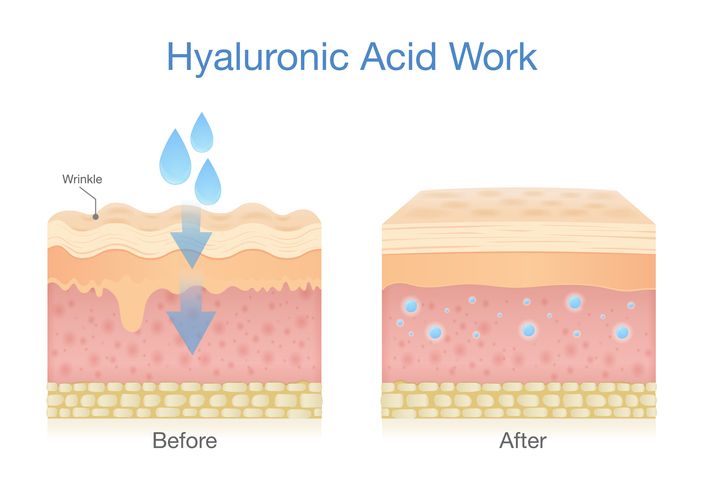
Hydration affects pore appearance
When skin is dehydrated, it loses plumpness and elasticity. This causes the skin around pores to sag slightly, making pores look larger. Lack of moisture also weakens the skin’s surface, which can lead to rough texture and irritation. Keeping skin hydrated helps it stay smooth, firm, and less prone to visible pores.
Hydrating ingredients that support skin texture
Ingredients like hyaluronic acid, glycerin, and squalane help draw moisture into the skin and lock it in. These ingredients keep skin soft, improve its elasticity, and help maintain the skin barrier. Well-hydrated skin has a healthier surface, which makes pores look smaller and less noticeable.
Products that work for different skin types
Oily skin benefits from lightweight hydrating serums or gels that absorb quickly without adding excess oil. Dry skin often needs thicker creams or oils that restore moisture and prevent flaking. For combination skin, using a hydrating serum under a light moisturizer can balance both oily and dry areas.
Drinking water supports skin hydration
Hydration also starts from within. Drinking enough water throughout the day helps maintain skin moisture levels and supports the skin barrier. While skincare products hydrate the surface, staying hydrated internally supports overall skin health.
Hydrated skin maintains a smoother surface
When skin stays hydrated, it feels softer and smoother. Hydration helps reduce the appearance of large pores, supports skin elasticity, and keeps the skin barrier strong. Adding hydrating products into your routine and drinking enough water each day helps maintain clear, healthy skin and a more refined texture.

Improve Pore Size and Skin Clarity with New Beauty’s Acne Treatment
Large pores, oily skin, and recurring breakouts often need more than just a basic skincare routine. Clogged pores, dead skin cells, and excess sebum can build up deep in the skin, leading to blackheads, whiteheads, and acne that seems impossible to clear fully. While regular cleansing and gentle exfoliation can help, large pores and stubborn acne often require a deeper solution to get lasting results.
The Acne Treatment is designed to address these concerns by combining deep pore cleansing with hydrating and oil-balancing care. While salicylic acid and retinol can help refine skin texture, the Acne Treatment works on a deeper level—clearing congested pores and improving skin structure, all without the need for invasive procedures.
How the treatment works
The Acne Treatment uses a dual spiral suction and drainage system to remove oil, dirt, sweat, and dead skin cells that cause clogged pores. As the probe moves across the skin, it exfoliates the surface while drawing out impurities trapped inside enlarged pores. This process helps reduce blackheads, whiteheads, and breakouts by removing the debris that stretches and damages pores.
After the cleansing step, a hydrating serum is infused into the skin. This serum balances oil production, soothes the sebaceous glands, and promotes collagen production. Collagen helps support skin elasticity, which is essential for minimizing pore size and maintaining a smoother, firmer skin surface.
The Acne Treatment is non-invasive and safe for most skin types, including oily skin, acne-prone skin, and combination skin. It’s particularly helpful for those dealing with moderate to severe acne, acne scars, and visible large pores that don’t improve with home care alone.
Why combine the Acne Treatment with regular skincare
• Regular cleansing clears the skin surface, but the Acne Treatment works deeper to remove oil, dirt, and sweat trapped in pores
• Helps reduce the appearance of large pores, blackheads, and breakouts that do not fully improve with home care alone
• Supports collagen production, helping prevent pores from stretching and losing firmness over time
• Balances sebum production and helps prevent future acne and blackheads by calming oil glands
• Non-invasive, safe, and suitable for acne-prone skin and different skin types
By combining the Acne Treatment with a skincare routine that includes gentle cleansers, salicylic acid, and non-comedogenic moisturizers, you can support skin clarity while improving texture, firmness, and pore size. This treatment offers a safe, targeted solution for large pores and acne-prone skin without the need for harsh products or medications.
Book your appointment now to see how the Acne Treatment can transform your skin and help you achieve clearer, smoother skin for the long term.
New Beauty's Acne TreatmentBook Now to Experience
Acne Treatment
1 Minute Self-Registration
Date should not be before minimal date
FAQ
1. Can large pores be permanently reduced?
Pore size is largely determined by genetics, but certain treatments and skincare products can help minimize their appearance. While you can’t remove pores completely, regular use of salicylic acid, retinol, and collagen-boosting products, combined with treatments like the Acne Treatment, can help keep pores clear and improve skin firmness. This makes pores look smaller and less noticeable over time.
2. Does oily skin always lead to large pores?
Oily skin tends to have larger pores because of increased sebum production, but not all people with oily skin will develop visibly enlarged pores. Factors like clogged pores, skin elasticity, and sun damage also contribute. Keeping skin clean and using non-comedogenic products can help manage oil without making pores appear larger.
3. What are the best ingredients to reduce the appearance of large pores?
Key ingredients include salicylic acid for clearing clogged pores, niacinamide for balancing oil production, retinol for supporting skin renewal, and peptides or vitamin C for collagen production. These ingredients work together to smooth skin texture, tighten the skin surface, and reduce visible pore size.
4. Can large pores cause acne breakouts?
Large pores themselves do not cause acne, but they are more likely to trap oil, dirt, and dead skin cells, which can lead to clogged pores and breakouts. When pores are stretched, they can hold more debris, creating an environment for bacteria to grow. A skincare routine that supports skin barrier health and keeps pores clear is important for preventing acne.
5. Does sun exposure make pores larger?
Yes, long-term sun exposure damages collagen and elastin, the proteins that keep skin firm. Without enough collagen, the skin loses structure, which makes pores look larger and the skin surface less smooth. Wearing sunscreen daily is important for protecting the skin, maintaining elasticity, and keeping pores from stretching further.
Recommended Articles
COPYRIGHT© NEW BEAUTY MANAGEMENT LIMITED 2026. ALL RIGHT RESERVED.

